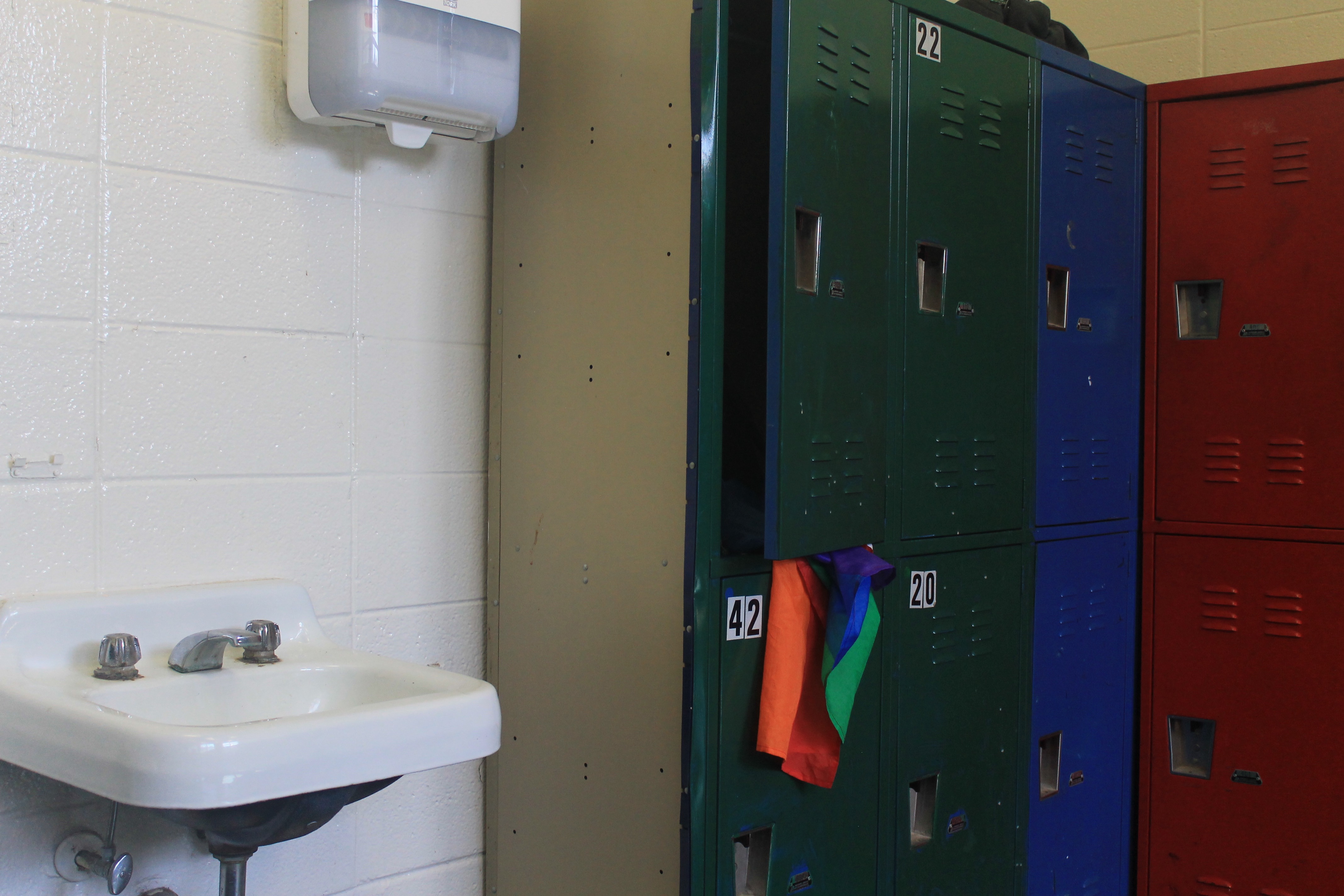Dakota McLean was 13 when they came out to their friends. And while most of them accepted McLean, their mind in the eyes of some would forever change. Their grandfather thought it best to try and convince them otherwise, not wanting his daughter to fall into sin. One of McLean’s best friends forced herself to turn away, saying that she couldn’t support their decision. McLean’s honesty started out slow as they feared the response of each individual they told. This fear would hold them back from crossing barriers throughout life that they feel otherwise wouldn’t have been there.
“It’s kind of gross because I probably would be on a sport if I wasn’t so scared of being gay,” McLean said. “I would’ve probably tried soccer. You know, you don’t know what we’re capable of, some of us could be really good at sports.”
As McLean talks, their words are distinctly past-tense. Being a senior, they are now faced with the sinking feeling that all of their opportunities are behind them.
“I really wanted to try out for the soccer team,” McLean said. “I stayed after and ran with them and stuff, and I still got scared because I didn’t know how it would be, because when I was in the locker room it was just tight fitting and awkward. I didn’t know how they would react.”
McLean is not the only senior that now regrets not taking a sport because they feared being antagonized, as many LGBTQ+ students feel that, after coming out, they faced new obstacles in the athletic department. With the formation of the recent PRIDE club along with its various achievements such as the implementation of gender-neutral bathrooms, students have been working to ensure equal opportunities and treatments for everyone. So where inside this plan lies the Northwood athletic department? Its apparent stance in relation to the rest of the school’s ever changing attitudes toward student representation shifts from person to person.
Alex Hart, Northwood’s varsity men’s basketball coach, believes that the school’s sports programs are meant to bring players together.
“I know that, for me, I love every single one of my players, no matter what,” Hart said. “It’s great to participate in athletics, it’s something that can unite and bring everybody together. It’s an extension of your school, so it’s a great way to find support.”
Despite the positive attitudes that most coaches support their players with, many LGBTQ+ students still feel like they’ve been cut off from participating in sports because of an awkwardness that seems inherent to them when being close with fellow athletes. Hannah Bynum, a bisexual Northwood athlete who plays a variety of sports, wishes that people were more open about themselves.
“Nobody states their sexual orientation at all, so we just assume that everyone’s straight and they assume that I’m straight,” Bynum said. “The jokes that coaches will make are like ‘Oh, I don’t want to catch you with your boyfriend.’ Well, what if I don’t have a boyfriend? What if I have a girlfriend this month? It could be awkward. It makes me feel awkward.”
Cameron Vernon, the head of the athletic department at Northwood, prefers not to make a big deal of his players’ sexual orientations.
“My job as a coach is not to seek out a student athlete’s sexual orientation,” Vernon said. “Have I had students in the past who have basically come out and told me that they were homosexual? Yes. Have I heard of their teammates talking about their sexual orientation? Yes. But that doesn’t bother me or affect me as a coach or a teacher.”
One LGBTQ+ former sports team manager, who wished to be kept anonymous, commented on the separation.
“[LGBTQ athletes] don’t feel comfortable doing it, if they grew up doing sports here,” they said. “Knowing now that they’re gay or lesbian or queer, they probably don’t feel as comfortable, because we’re in Pittsboro, rural Chatham County. Here, it’s two separate communities, and if someone wants to jump from one to the other, it would be just that: a leap.”
Some athletes, such as Bryn Aydt, who competes in varsity basketball, believe that it’s very important to be open about oneself.
“If you’re gay, or if you’re lesbian, or whatever, be open with who you are, don’t feel like you should be trapped in this little box,” Aydt said. “Let people know, and if they don’t accept you for who you are, then they weren’t your friends in the beginning.”
Like many in the athletic department, she has chosen to keep her eyes on the task at hand.
“I don’t really care what anybody thinks, so I just handle my business in the classroom, on the floor,” Aydt said. “If people want to talk about me, that’s fine, I don’t really care.”
Whatever they decided to think, everyone stressed being open about yourself and respectful toward others. McLean stressed the value of looking at people with a blank slate.
“We’re all teenagers, and we still have a lot of years to figure out whom we are and what we want to do and stuff,” McLean said. “Don’t judge someone because they’re still trying to find out whom they are.”
As Northwood steadily moves toward a more inclusive environment, the role of the athletics department in helping students will have to become less divided, and so will the people inside and out of it.
– By Parker Pschorr

